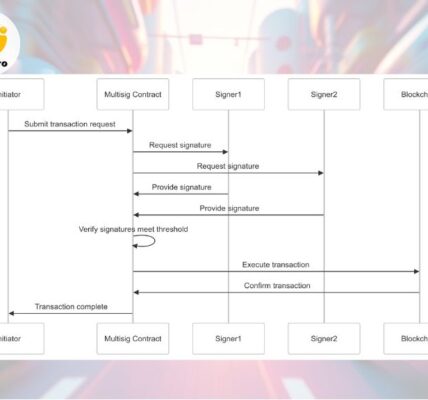Overview of Finance Careers
Finance careers are diverse and offer significant growth prospects. From entry-level positions such as financial analysts to senior roles like Chief Financial Officers (CFOs), the field encompasses a broad spectrum of job titles and responsibilities. The evolving nature of finance jobs means that professionals must now possess skills in digital transformation, data analytics, and technological innovation alongside traditional financial acumen.
The finance industry is not static; it adapts to economic changes, regulatory updates, and technological advancements. This adaptability makes it an exciting field for those who enjoy problem-solving and strategic thinking. Whether you’re interested in corporate finance, investment banking, or asset management, there’s a role that aligns with your skills and interests.
Key Roles in Fund Management
Chief Financial Officer (CFO)
The Chief Financial Officer (CFO) is a senior executive responsible for overseeing the entire finance team. Key responsibilities include managing financial forecasts, guiding long-term financial planning, and developing relationships with internal stakeholders such as the board of directors and external parties like investors and auditors. The CFO plays a critical role in the organizational hierarchy by ensuring financial stability and strategic growth.
Financial Advisor
A Financial Advisor provides comprehensive financial advice to clients. Their roles include investment management, insurance planning, retirement planning, tax planning, and budgetary planning. Financial advisors interact closely with clients to understand their financial goals and develop personalized strategies to achieve them. Specializations can vary from wealth management to estate planning.
Finance Manager
The Finance Manager is responsible for organizing and managing financial portfolios. This includes supervising cash management activities, investment planning, creating detailed financial reports, and managing credits and collections. Finance managers are essential for the day-to-day financial operations of an organization.
Treasurer
The Treasurer focuses on corporate finance activities such as risk management, cash and liquidity management, and financial forecasting. Reporting directly to the CFO, the treasurer assists in making key investment decisions and ensures that the company’s financial resources are optimally utilized.
Fund Management Specific Roles
Fund Manager
A Fund Manager implements investment strategies aimed at maximizing returns for investors. Responsibilities include managing portfolio trading activities, overseeing mutual funds or pensions, and making critical investment decisions. There are two types of fund managers: active fund managers, who actively seek to beat market benchmarks through strategic investments, and passive fund managers, who follow a more passive approach by tracking market indices.
To become a fund manager, one typically needs advanced educational qualifications such as an MBA or CFA designation. Experience in the field is also crucial; many fund managers start their careers as research analysts before progressing to more senior roles.
Portfolio Manager
The Portfolio Manager is responsible for the overall management of investment strategies within a portfolio. This includes portfolio construction, asset allocation, security selection, and ongoing monitoring of performance. Portfolio managers report to the Chief Investment Officer and are accountable to risk committees within their organizations.
Career progression for portfolio managers often begins with roles such as research analysts before moving into more senior positions. This career path requires strong analytical skills and a deep understanding of market dynamics.
Hedge Fund Portfolio Manager
A Hedge Fund Portfolio Manager makes final trading decisions for hedge funds while managing risk exposure. Additional responsibilities include overseeing back/middle office operations and non-investment tasks like marketing and capital raising. Career progression in this role can be rapid but highly competitive; it often involves starting as a junior analyst before advancing to senior positions based on performance.
Salary ranges for hedge fund portfolio managers can be lucrative but are heavily performance-based. Success in this role requires not only strong analytical skills but also excellent communication and leadership abilities.
Supporting Roles in Fund Management
Research Analyst
Research Analysts play a vital role in fund management by researching markets, sectors, and companies to provide investment recommendations to portfolio managers. Specializations can vary by asset class or sector; for example, some analysts may focus on equities while others specialize in fixed income or commodities.
Middle and Back Office Roles
Middle and back office roles are essential for supporting the smooth operation of investment teams. These roles include compliance officers, who ensure regulatory adherence; risk managers, who monitor risk exposure; traders, who execute trades; and administrative staff who handle operational tasks. These roles are critical for maintaining the integrity and efficiency of fund management operations.
Career Path and Development
Educational and Professional Requirements
High educational standards are a prerequisite for careers in fund management. Professional credentials such as CFA designations are highly valued and often required for advanced roles. Experience is equally important; many professionals start in entry-level positions before advancing through the career hierarchy based on their performance and skills.
Career Progression
Career progression in fund management typically involves starting in roles such as research analysts or financial analysts before moving into more senior positions like portfolio managers or fund managers. Typical promotion times vary but often depend on individual performance metrics such as investment returns or client satisfaction.
Building a reputation within the organization is crucial for career advancement. This involves gaining trust from colleagues and superiors through consistent performance and ethical conduct.
Compensation and Performance Metrics
Salary Ranges and Bonuses
Salaries for roles in fund management vary widely depending on the position, experience level, and performance metrics. For example:
-
Fund Managers can earn base salaries ranging from $100,000 to over $200,000 annually plus bonuses that can significantly increase total compensation.
-
Hedge Fund Portfolio Managers often receive performance-based compensation that can lead to much higher earnings compared to other roles.
Comparative statistics show that compensation at different levels of the career path can vary significantly based on factors such as location, industry segment (e.g., hedge funds vs mutual funds), and individual performance.
Performance Metrics
Key performance indicators (KPIs) for fund managers include fund performance relative to benchmarks such as market indices or peer group averages. Market forces such as economic conditions also impact fund performance alongside manager skills like asset allocation decisions.
Understanding these KPIs is essential for evaluating success in fund management roles.





